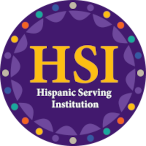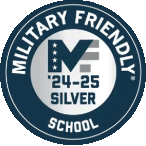Student Learning Outcomes (SLOs) and Program Review
We at Western New Mexico University continually endeavor to create a coherent, seamlessly integrated institutional apparatus for the ultimate realization of “lifelong success in work and life” (see WNMU mission) “within the changing context of a global, digital world” (see WNMU vision). To that end, we seek to enhance institutional effectiveness through strategic coordination of cross-collaborative committees, projects and initiatives, including curriculum assessment and program review, in support of student success and institutional coherence. Ultimately, our task is to engage persistently in institutional effectiveness planning.
Institutional effectiveness refers to how well our institution is achieving its mission, vision, and core goals. An effective institution is characterized by a clearly defined mission and vision that articulate whom the University serves, what it aspires to be, what it values, and to what end. Fundamentally, effectiveness is a function of data-driven decisions about resource allocations and continuous improvement.
In particular, institutional effectiveness and student success—in accordance with furthering the mission, vision, and values of Western New Mexico University—are predicated upon two overarching pillars: 1) curriculum assessment and 2) program reviews. Curriculum assessment is evaluated by annual programmatic student learning outcomes (SLO) assessment done annually. Program reviews consist of a comprehensive evaluation of the status of an academic unit based on degree plans, activities, achievements, and relative strengths and weaknesses. At the end of the day, the effectiveness of Western New Mexico University is validated by determining whether the institution’s constituent units are addressing its mission, vision, and core values, as operationalized in the strategic plan.
Academic Affairs is principally responsible for coordinating the efforts of the Assessment Committee (which oversees department-level student learning outcome reports), the General Education Committee (which oversees General Education assessment), and the Curriculum and Instruction Committee (which oversees program reviews).
WNMU describes its goals for student learning at the degree level, program level, and course level on respective webpages and in written and online materials as demonstrated in evidence, and these outcomes form the basis of the institutional Student Learning Outcome (SLO) assessment process. Assessment has become a priority in our most recent iteration of the Institutional Strategic Plan. The goal is to maintain a university-wide system of accountability to ensure data-informed decision-making related to WNMU’s mission, vision, and values.
Student Learning Outcome assessment is one of the foundational practices to accomplish this goal. Through this assessment, each program regularly measures how well students meet their identified learning outcomes through SLO reporting and evaluation by department heads to their college deans and the Vice President of Academic Affairs via the WNMU Assessment Committee. These assessment procedures and practices have recently been updated within the Quality Initiative SLO Assessment project, 2021-2024. The revision of the university-wide assessment practices led to an updated Assessment Handbook, SLO Assessment form, and procedures for submission and evaluation in Canvas to help guide the process of these annual assessments and to assist programs with making higher level data-driven decisions regarding curriculum and pedagogy. All SLO assessment reports must explain the use of data in driving programmatic improvement and change.
SLO evaluation occurs with cooperative participation of faculty, staff, and administrators through direct involvement within the academic department and involvement through curriculum and assessment committees. Methods used to assess SLOs may include results from standardized tests, departmental scorecards for tracking Key Performance Indicators (KPIs), student and teacher portfolios, course-embedded assessments (or other direct measures of student learning and performance), and licensure or exit exam results. WNMU also has many accredited programs with SLOs mandated by external governing or accrediting bodies. Each such program measures how well students meet SLOs through procedures agreed upon by those academic units and their specialized accrediting bodies.
All methodologies used to assess student learning align with best practices, some of which are outlined in the Assessment Handbook updated in 2022.
Annual SLO Assessment reports are reviewed by the Assessment Committee, which consists of one member from each academic department and a maximum of six staff members appointed by the Faculty and Staff Senates and meets monthly.
As it pertains to general education program (GEP) assessment, WNMU has a robust assessment of individual general education courses, and the overall GEP has recently undergone a systematic review and revision documented in the Quality Initiative SLO Assessment project. In a shared governance process including faculty and administration, SLOs have been created to align with the New Mexico Higher Education Department’s Essential Skills for assessing student learning. These are as follows:
Also, a new General Education Handbook was created, including SLOs, the General Education Assessment Plan, General Education Rubrics, and data-collection processes and procedures. Training was held throughout Spring 2024 for general education faculty and later, for all faculty and staff in our 2024 Assessment Convocation. Future training on data collection as well as teaching and assessing the five GEP SLOs aligned with the New Mexico Essential Skills will begin in Fall 2024. Data collection will also begin Fall 2024.
The academic program review process is a comprehensive review of established degree programs that occurs at regularly established intervals. Program reviews provide an opportunity for faculty to examine how effectively their respective programs are meeting goals and outcomes, in the broader context of institutional effectiveness. In doing so, the unit provides comparisons with its peers and identifies strengths and weaknesses in curricula and pedagogy. Moreover, it assesses student quality and learning outcomes and provides an account of faculty contributions in teaching, research/creative activities, and service. Further, it reviews resource availability and needs and summarizes special features or services provided by the unit. Finally, and perhaps most importantly, the program review should allow the unit, in conjunction with the university, to plan to build on existing strengths, maximize opportunities for growth and innovatively problem-solve.
Programs with External Accreditation
Specialized accreditation reports may be substituted for an academic program review report.
The Curriculum and Instruction Committee oversees undergraduate programs.
Graduate Council oversees graduate level program reviews.

